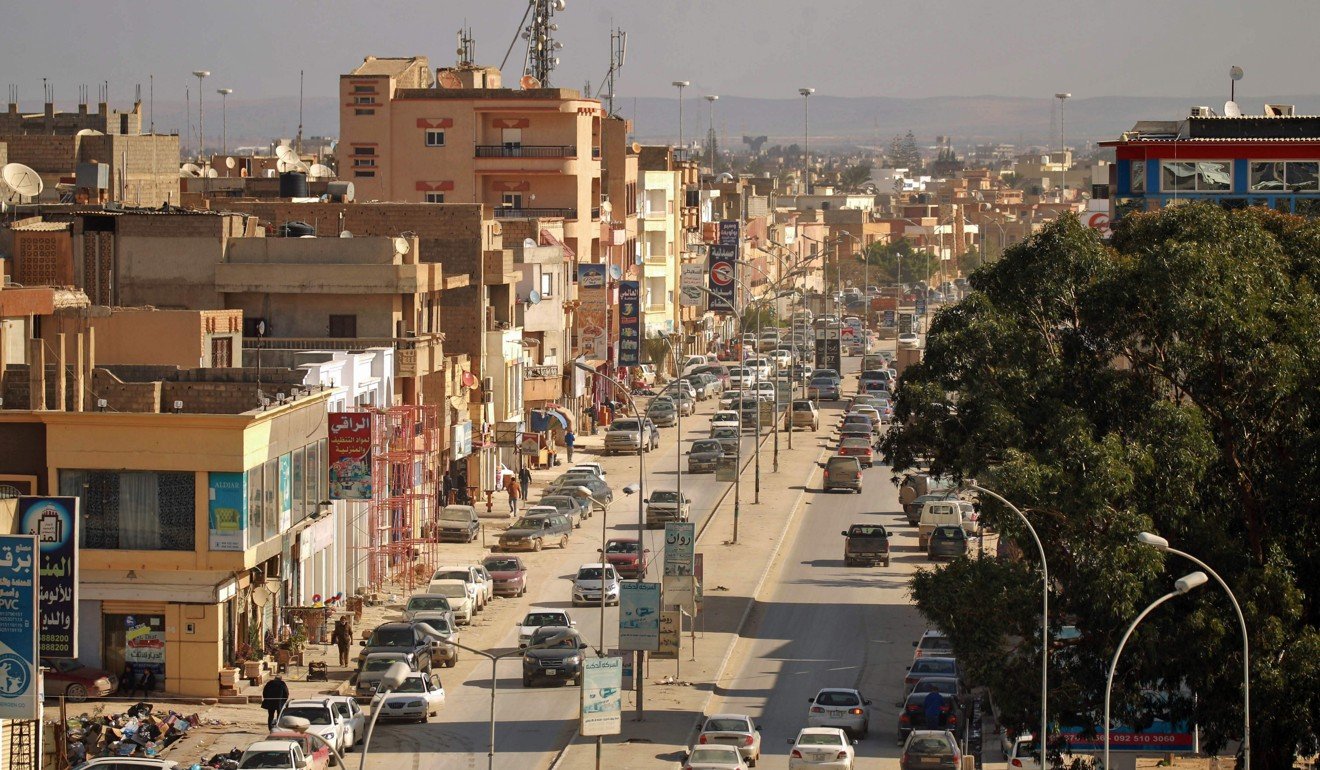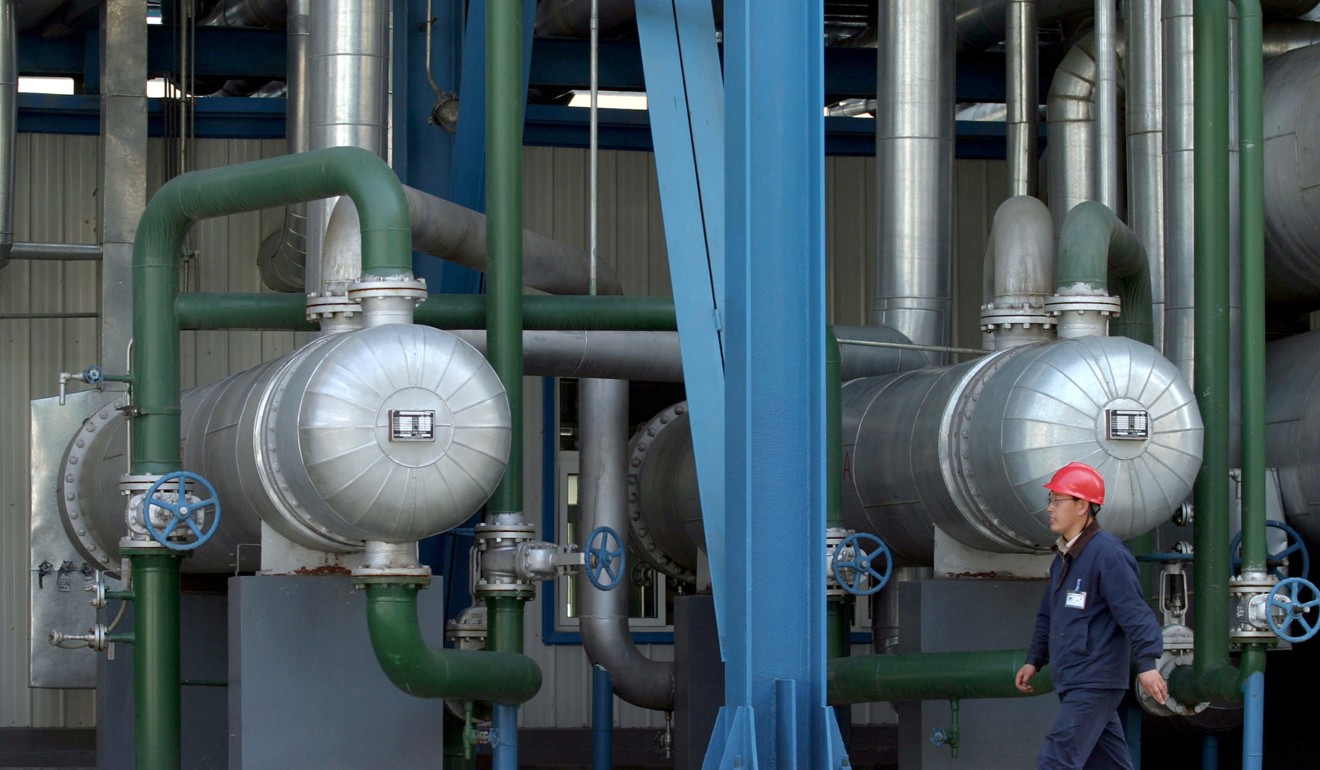
- China’s ‘balanced vagueness’ places bets on both sides
- If the Libyan government wins, the belt and road plan will get a boost. If the Libyan army wins, PetroChina gets one instead
Date: Thursday, 30 January 2020
At a recent joint press conference in Cairo with his Egyptian counterpart, Chinese Foreign Minister Wang Yi opposed military intervention in Libya, saying it would only aggravate conflicts and intensify confrontations.
Despite his call, however, a German-brokered ceasefire collapsed over the weekend, and the United Nations has reported that arms shipments from foreign powers have resumed. It is easy to see why China has viewed the Libyan crisis with increasing alarm recently: renewed fighting is a bad omen for the country’s growing economic footprint in the region.
But China’s call for UN-led negotiations and support for a broader political dialogue should not be read as sterile propaganda. China has the means to affect the situation in Libya – via a diplomatic effort twinned with its economic power.
Beijing has grown increasingly anxious about the situation in the region since 2011, when the Arab spring sowed the seeds of chaos in Libya and elsewhere. Porous borders, fluid transnational criminality and growing terrorist networks in the Middle East and North Africa (MENA) region are a grave threat to the development of its Belt and Road Initiative there.
Libya presents a particular challenge. Chinese oil interests there have been under threat since the collapse of Muammar Gaddafi’s regime, with the state-led energy company CNPC coming under direct attack. The sudden evacuation from Libya of more than 36,000 Chinese nationals at the beginning of 2011 offered a sharp lesson to Beijing: its principle of political non-interference was no shield against bullets from local militias. Worse, its decades of economic cooperation with the Gaddafi regime was seen as a negative by National Transition Council (NTC), which officially stated that nations which supported the dictator would be at a disadvantage in the “new” Libya.

To avoid committing the same mistake twice, China maintained a balanced vagueness in dealing with the evolving Libyan crisis. Even though most international actors have taken sides between the Libyan Government of National Accord (GNA) and the Libyan National Army (LNA), Beijing has maintained a balanced stance. The contemporary Chinese policy of non-alignment differs from its previous stance of non-interference. On the surface, both call for a multilateral solution to the Libyan crisis. Despite the fact that the language used was similar, Beijing now makes no effort to prop up one side or the other. Instead, it is engaging with the two warring parties. In effect, it has placed bets on both sides.
In the event Prime Minister Fayez al-Sarraj is victorious, China will benefit from being aligned with the UN’s support for the GNA and from Sarraj’s decision to have Libya join the belt and road. But in case Field Marshal Khalifa Haftar’s LNA prevails because of its military advantage, CNPC’s PetroChina can count on its ongoing cooperation with Libya’s National Oil Corporation, since the bulk of the country’s oilfields sit in territory controlled by the LNA.
This balancing act again drives home China’s geostrategic priorities: stability and certainty to further its economic ambitions. While international stakeholders are strategising over the short and middle game on the Libyan chessboard, China is looking at the endgame: post-conflict reconstruction.
Both Sarraj and Marshal Haftar are well aware that while countries such as the United Arab Emirates, Russia, France or Turkey can provide the decisive military hardware to win battles, China is one of the few nations that can provide financial and technical support to rebuild the country. It should therefore come as no surprise if, in the coming months, China will call for adherence to a political solution in Libya and a UN-led initiative that supports the role of regional organisations, such as the African Union.

Over the last year, Beijing has already been on the lookout for possible post-war reconstruction investments in Syria, with managers of some State-Owned Enterprises (SOEs) visiting Damascus. At the same time, several North African countries, from Egypt to Morocco, have already reciprocated China’s interest in trade cooperation and infrastructure development, which are led by ubiquitous SOEs supported by Beijing’s state banks. In the MENA region, China’s geopolitical interests have already moved past its old ideological support for independence against a colonial oppressor.
In recent times, the European Union has been perceived as being the leader on economic cooperation and trade with the region, while the United States was the lead actor when it came to regional security.
But Washington’s increasing retrenchment from the region and the concomitant European identity crisis – symptoms of economic decline and the revival of populism and extremism, which are already evident in some states – have left not only North Africa, but the entire continent, open to Chinese banking diplomacy. While China has already made significant inroads into North Africa, the increasingly chaotic evolution of the Libyan conflict is complicating its economic and political engagement in the region.
A win-win solution between the LNA and GNA is not expected soon. While the question of how long China can remain on the sidelines of conflicts is still open, the neutral stance that Beijing maintained during the US-Iran crisis ignited by the assassination of Major General Qassem Soleimani showcased its balancing abilities. Once the Libyan conflict reaches an equilibrium point, China’s wait-and-see approach is going to provide Beijing with broader scope for intervention – not only into Libya’s economic affairs, but also its political sphere.
Alessandro Arduino is principal research fellow at the Middle East Institute at the National University of Singapore